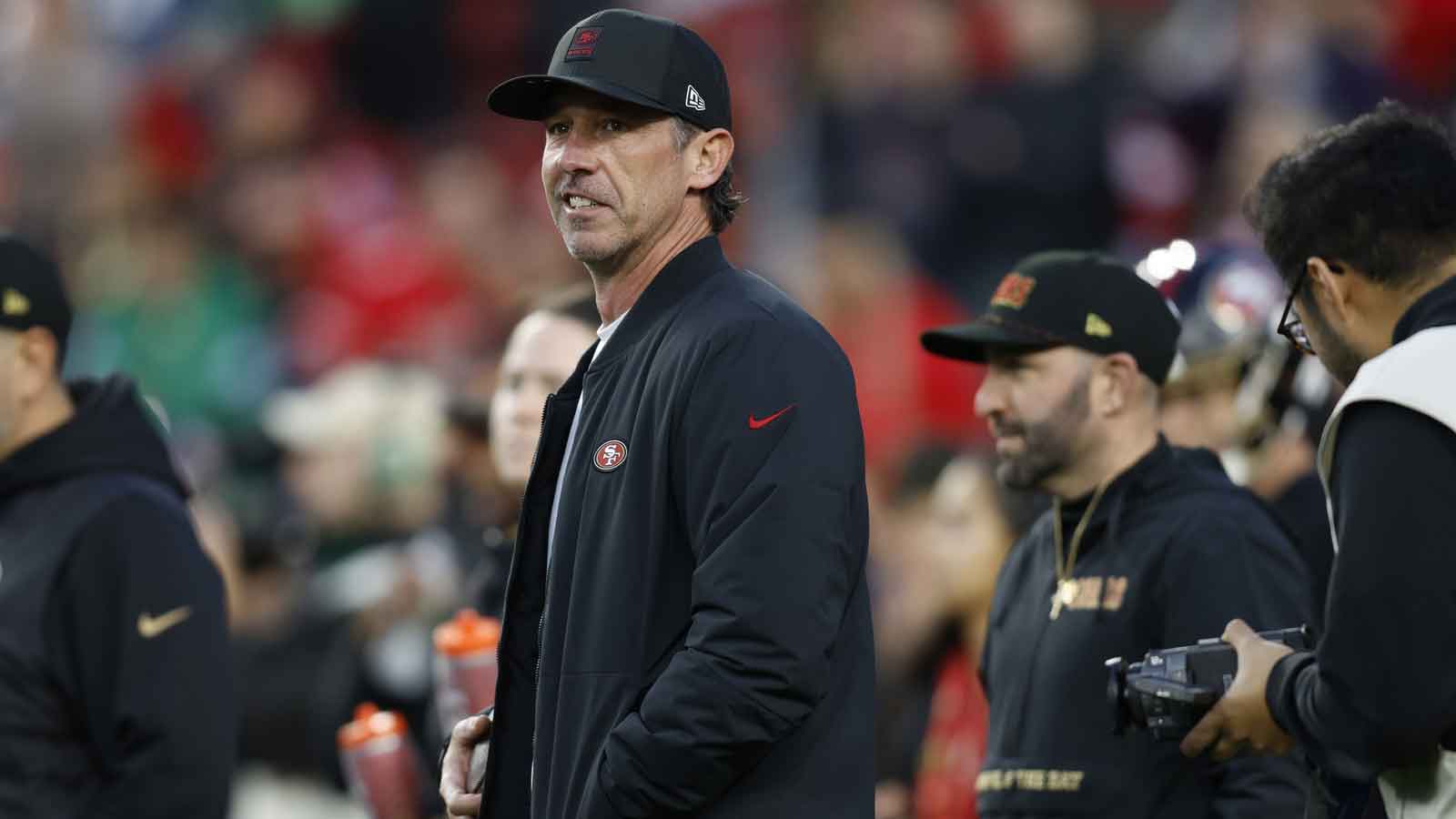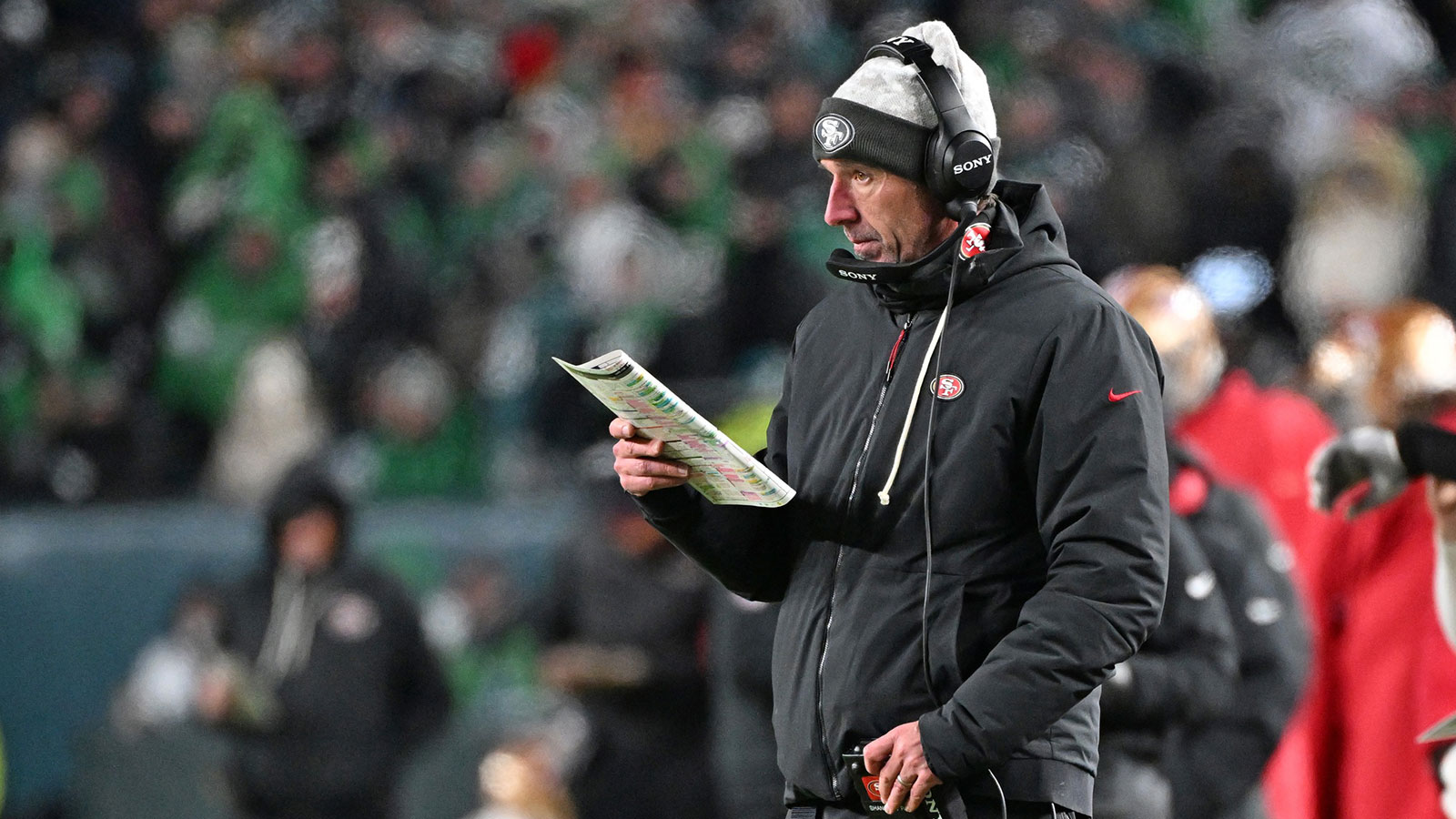The NFL's potential shift to an 18-game schedule has been a hot topic of discussion throughout the offseason. Adding to the chorus of voices weighing in on this issue is San Francisco 49ers' tight end George Kittle, per NBC Myles Simmons. In a recent appearance on the Rich Eisen Show, Kittle offered a nuanced perspective to the hotly debated topic, suggesting that an 18-game season could be feasible, provided players are given additional rest in the form of an extra bye week.
Kittle's primary argument is centered around the physical toll that an extended season would take on players. He emphasized the need for adequate rest to maintain player health and performance.
“No. 1, it's inevitably, first, going to get to 18 games at some point, right? And I think I've said it ever since we got to 17 games, I was like, just give us two byes,” Kittle remarked.
His logic is straightforward: adding a second bye week would extend the season by an extra week, creating a 19-week schedule that not only benefits players but also offers more content for broadcasters and advertisers.
The tight end elaborated on the physical demands of the game, stating:
“It’s hard to play 18 games. But I’m totally fine with that, just give us two byes.” Kittle's view is that the additional bye week would provide essential recovery time, making the extended season more manageable for players. He believes that with the right adjustments, many players would be more accepting of the 18-game format.
Reflecting on the recent changes brought by the new Collective Bargaining Agreement (CBA), Kittle noted how the transition from 16 to 17 games was sudden and largely unexpected by players.
“I think when we did the CBA and we were like, it’s 16 games and 17 games was not ever on the table and then all of a sudden, it just was — I think it’s inevitable that the owners are going to [say], ‘Hey, this is what we want to do,’” Kittle explained.
He acknowledged that while owners might push for an 18-game season, the players would need to negotiate terms that ensure their well-being.
One of Kittle's significant concerns is the cumulative impact of a longer season combined with the playoffs.
“Playing 16 games in a row is hard. Playing 17 is really hard. And then you throw the playoffs on top of it and now you’re going to add an 18th game? That’s a lot of football,” he emphasized. This sentiment highlights the need for structural changes to the season to prevent player burnout and injuries.
What else did George Kittle discuss?

Beyond the regular season schedule, Kittle also touched upon the current offseason program. He suggested that the existing schedule is overly demanding, particularly for players who participate in the playoffs.
“If you play throughout the entire playoffs — you’re playing in mid-February — and you’re supposed to show up April 15 for Phase I of OTAs, that’s pretty aggressive,” Kittle said. He proposed a revised format that allows for more rest and recovery time, potentially eliminating or reducing the voluntary offseason training activities (OTAs).
Kittle's idea includes maintaining the traditional NFL shutdown around July 4th but adjusting the reporting dates for training camps.
“I think taking two months in the middle of the spring is pretty aggressive,” Kittle said, suggesting that players should instead report for a mid-July ramp-up with camps starting later in the month.
Reflecting on the professionalism and self-discipline of seasoned players, Kittle added, “I think if you’re past Year 5, you’re in the league for a reason. It’s not luck at this point. You have a good work ethic, you’re doing the right things, you can take care of yourself.”
He argued that veteran players, in particular, don't need the extensive early offseason programs and could benefit from a more flexible schedule that still allows for necessary meetings and training via virtual platforms, as demonstrated during the COVID-19 pandemic.
In conclusion, George Kittle's take on the potential 18-game schedule is a balanced one. He recognizes the inevitability of the extended season but advocates for necessary adjustments to ensure player health and safety. His call for additional bye weeks and a reevaluation of the offseason program reflects a broader concern for the physical demands placed on NFL players.
As discussions about the 18-game schedule continue, Kittle's insights provide a valuable perspective on how to make such a transition work for both players and the league.



















